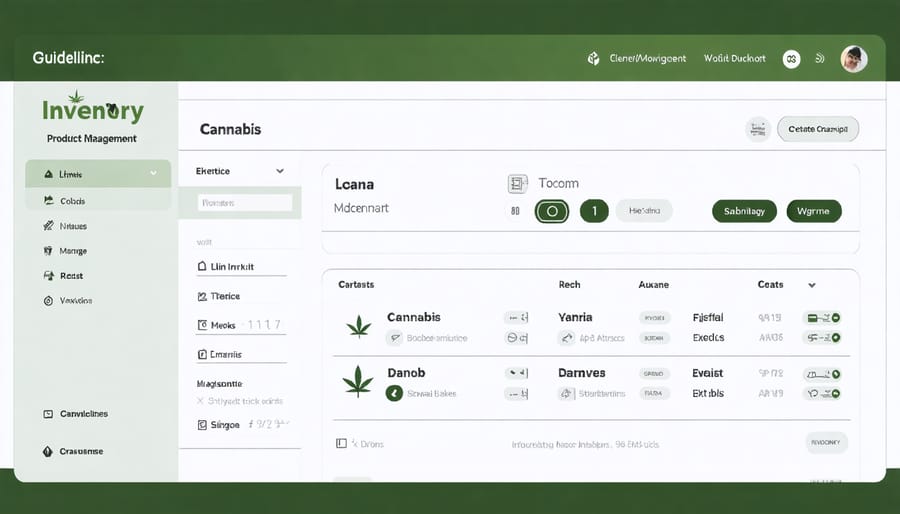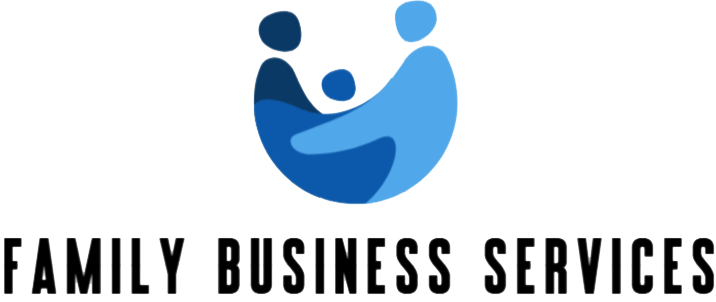Navigating cannabis tax compliance demands rigorous attention to detail and strategic planning for Canadian businesses selling products from hhc gummies to dried flower. Track every transaction meticulously through dedicated point-of-sale systems designed specifically for cannabis retail, capturing essential excise duty calculations and GST/HST requirements. Implement comprehensive inventory management protocols that document the full chain of custody, from seed to sale, ensuring alignment with Canada Revenue Agency (CRA) reporting standards. Maintain detailed records of all operating expenses, including facility costs, security measures, and compliance-related expenditures to maximize legitimate tax deductions while adhering to strict regulatory guidelines.
Professional cannabis tax preparation requires understanding both traditional business tax obligations and industry-specific requirements under the Cannabis Act. Small business owners must navigate complex excise duties, provincial sales taxes, and federal reporting requirements while maintaining impeccable documentation. Working with tax professionals who specialize in cannabis operations can help ensure compliance while identifying legitimate opportunities for tax efficiency.
Cannabis-Specific Tax Requirements in Canada
Excise Duty Requirements
Cannabis excise stamps are mandatory for all packaged cannabis products in Canada, serving as proof that duties have been paid. These stamps must be purchased from the Canada Revenue Agency (CRA) and properly affixed to all cannabis products before they can be sold. Each province has its own unique stamp color, and businesses must ensure they’re using the correct stamps for their jurisdiction.
The excise duty calculation follows a specific formula based on either the quantity of flowering and non-flowering material or a percentage of the product’s sale price, whichever is higher. For dried cannabis, the flat rate is $1 per gram or 10% of the sale price. For extracts and edibles, the calculation is based on the total THC content.
To manage excise duties effectively, businesses should:
– Maintain detailed records of stamp purchases and usage
– Track inventory movements accurately
– Calculate duties monthly
– Submit regular excise duty returns
– Keep proof of payment for at least six years
It’s crucial to implement a reliable tracking system for both inventory and excise stamps, as errors can result in significant penalties. Many businesses find it helpful to use specialized cannabis accounting software that automates these calculations and maintains the required documentation. Regular internal audits of stamp inventory and duty calculations can help ensure ongoing compliance with CRA requirements.

GST/HST Considerations
Cannabis businesses in Canada face unique GST/HST requirements that demand careful attention. As a cannabis business owner, you must register for GST/HST if your total revenue exceeds $30,000 in any four consecutive calendar quarters. This requirement applies regardless of whether you’re involved in cultivation, processing, or retail operations.
When collecting GST/HST, you’ll need to charge the appropriate rate based on your province of operation. Currently, the rates vary from 5% GST in Alberta to 15% HST in the Atlantic provinces. Keep in mind that cannabis-specific excise duties are calculated separately from GST/HST.
To maintain compliance, implement a robust point-of-sale system that accurately tracks and records all GST/HST collected. You’ll need to file returns regularly, typically quarterly, though monthly filing may be required depending on your revenue levels.
Remember that input tax credits (ITCs) can help offset the GST/HST you pay on business expenses. However, certain restrictions apply specifically to cannabis businesses, so maintain detailed records of all transactions and consult with a tax professional to ensure you’re claiming ITCs correctly.
Special rules also apply to interprovincial sales and online transactions. Be sure to verify customer locations and apply the appropriate tax rates for each sale to avoid compliance issues.
Essential Record-Keeping Practices

Inventory Tracking Systems
Maintaining accurate inventory records is crucial for cannabis businesses in Canada, both for tax compliance and regulatory requirements. Health Canada and the Canada Revenue Agency (CRA) require detailed tracking of all cannabis products from seed to sale. This includes documenting purchases, sales, returns, and any product losses or destructions.
Your inventory tracking system must record specific details for each transaction, including product types, quantities, prices, and unique identifiers. For packaged products, you need to maintain records of SKUs, lot numbers, and package dates. This information is essential for filing accurate tax returns and responding to potential CRA audits.
Consider implementing a digital inventory management system that integrates with your point-of-sale software. These systems can automatically track inventory movements, generate required reports, and maintain audit trails. Look for solutions that are compliant with Canadian cannabis regulations and can export data in CRA-approved formats.
Key inventory tracking requirements include:
– Daily recording of all inventory movements
– Monthly reconciliation of physical inventory counts
– Documentation of any inventory adjustments or write-offs
– Retention of records for at least six years
– Separate tracking for different license types (cultivation, processing, retail)
Remember to regularly back up your inventory data and maintain both digital and physical copies of important documents. Proper inventory tracking not only ensures tax compliance but also helps identify potential losses, optimize stock levels, and improve business efficiency.
Financial Documentation
Maintaining accurate financial records is crucial for cannabis businesses in Canada to ensure tax compliance and business success. Your documentation system should include detailed records of all sales transactions, inventory movements, and operating expenses. Essential records to maintain include daily sales reports, purchase invoices, banking statements, and payroll documentation.
Consider implementing robust financial management tools that can track both cash and electronic transactions. The Canada Revenue Agency (CRA) requires cannabis businesses to maintain records for at least six years from the end of the last tax year they relate to.
Key documentation requirements include:
– Point-of-sale (POS) system reports
– Inventory tracking records
– Employee time sheets and payroll records
– Supplier invoices and contracts
– Equipment purchase and maintenance records
– Utility bills and rent payments
– Insurance documentation
– License fees and regulatory compliance costs
Implement a systematic filing system that organizes these documents by category and date. Consider using cloud-based storage solutions with regular backups to ensure data security and accessibility. Monthly reconciliation of your accounts will help identify any discrepancies early and maintain accurate financial records throughout the year.
Remember to keep detailed records of all charitable donations, capital investments, and research and development expenses, as these may qualify for tax deductions or credits specific to the cannabis industry.
Tax-Saving Strategies
Deductible Business Expenses
Operating a cannabis business in Canada comes with unique considerations for deductible business expenses. To maximize your tax benefits, it’s essential to understand which expenses qualify and maintain proper documentation.
Common eligible expenses include:
– Cultivation equipment and supplies
– Security systems and monitoring
– Packaging and labeling materials
– Employee wages and benefits
– Rent and utilities
– Professional services (legal, accounting)
– Insurance premiums
– Marketing and advertising (within legal limits)
– Transportation and delivery costs
To support these deductions, maintain detailed records including:
– Original receipts and invoices
– Payment confirmations
– Contracts and agreements
– Inventory tracking documents
– Employee time sheets
– Vehicle logs for delivery expenses
Keep all documentation for at least six years, as required by the Canada Revenue Agency. Digital copies are acceptable, but ensure they’re properly backed up and easily accessible. Consider using accounting software specifically designed for cannabis businesses to streamline record-keeping and expense tracking.
Remember that personal expenses must be kept separate from business expenses, and any mixed-use items should have their business portion clearly calculated and documented. When in doubt about expense eligibility, consult with a tax professional familiar with the cannabis industry.
Tax Credits and Incentives
Cannabis businesses in Canada can benefit from several tax credits and incentives designed to support business growth and innovation. The Scientific Research and Experimental Development (SR&ED) program offers significant tax credits for companies investing in research and development, including those working on cannabis cultivation techniques or product development.
Small business owners can take advantage of the Small Business Deduction (SBD), which reduces the federal corporate tax rate from 15% to 9% on the first $500,000 of qualifying income. This applies to Canadian-controlled private corporations, including licensed cannabis operations.
Agricultural and farming-related tax benefits may also apply to cannabis cultivation businesses. These include the AgriInvest program, which helps manage income fluctuations, and capital cost allowance claims for farming equipment and buildings.
Investment tax credits are available for businesses purchasing qualifying equipment or making facility improvements. This includes energy-efficient upgrades and clean technology investments, which can be particularly relevant for indoor growing operations.
Employment-related incentives, such as the Canada Job Grant and apprenticeship tax credits, can help offset the costs of training new staff in your cannabis business. Additionally, provincial programs vary by region, offering location-specific benefits for businesses operating in different parts of Canada.
Remember to consult with a qualified tax professional to ensure you’re maximizing all available credits and incentives while maintaining compliance with cannabis-specific regulations.

Working with Tax Professionals
Working with a qualified tax professional can be invaluable for cannabis businesses navigating Canada’s complex tax landscape. These experts bring specialized knowledge of both general business taxation and industry-specific requirements, helping you maintain compliance while maximizing available deductions and credits.
A professional tax advisor can help you establish proper record-keeping systems, prepare accurate financial statements, and ensure you’re meeting all CRA requirements. They can also provide strategic guidance on tax planning, helping you make informed decisions about business structure, expense management, and investment timing.
When choosing a tax professional, look for someone with specific experience in the cannabis industry. They should understand the unique challenges and regulations facing cannabis businesses, including excise tax requirements and provincial variations in tax treatment. Consider professionals who:
– Have demonstrated experience with cannabis businesses
– Maintain current knowledge of industry regulations
– Belong to recognized professional associations
– Offer comprehensive compliance services
– Provide clear communication and regular updates
– Have a strong track record of CRA audit support
The cost of professional tax services should be viewed as an investment in your business’s financial health. While it may seem expensive initially, the potential savings through proper tax planning and the prevention of costly errors typically outweigh the fees involved. Many professionals offer flexible payment plans or package deals for ongoing support.
To get the most value from your tax professional relationship:
– Keep organized records throughout the year
– Schedule regular check-ins to discuss business changes
– Ask questions about tax implications before making major decisions
– Request explanations of complex concepts in plain language
– Stay informed about basic tax requirements and deadlines
– Maintain open communication about business challenges and goals
Remember that while tax professionals provide expert guidance, you remain ultimately responsible for your business’s tax compliance. Choose someone you trust and who takes the time to understand your business needs while helping you build a strong foundation for long-term success.
Navigating cannabis tax preparation in Canada requires careful attention to detail and a thorough understanding of your obligations. By maintaining accurate records, tracking all transactions, and implementing proper accounting systems, you can ensure compliance while maximizing available deductions. Remember to keep detailed documentation of your inventory management, sales records, and operating expenses throughout the year.
Consider working with a qualified tax professional who understands the unique challenges of the cannabis industry. They can help you stay current with changing regulations and identify opportunities for tax efficiency. Make sure to review your tax strategy quarterly to avoid last-minute complications and ensure you’re on track with your obligations.
Key steps for success include: maintaining organized financial records, separating personal and business expenses, tracking inventory carefully, keeping all receipts and documentation, and staying informed about regulatory changes. Set up regular reviews of your financial systems and consider implementing digital tools to streamline your record-keeping processes.
Start preparing for next year’s tax season early by establishing a solid bookkeeping routine and maintaining clear communication with your financial advisors. Remember that proper tax preparation is an ongoing process, not just an annual event. With the right systems in place and professional guidance when needed, you can confidently manage your cannabis business’s tax obligations while focusing on growth and success.



